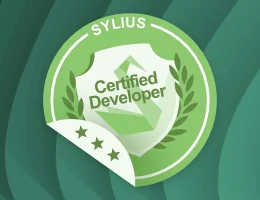Built-in Symfony Events
Warning: You are browsing the documentation for Symfony 2.x, which is no longer maintained.
Read the updated version of this page for Symfony 7.0 (the current stable version).
During the handling of an HTTP request, the Symfony framework (or any application using the HttpKernel component) dispatches some events which you can use to modify how the request is handled.
Kernel Events
Each event dispatched by the HttpKernel component is a subclass of KernelEvent, which provides the following information:
- getRequestType()
-
Returns the type of the request (
HttpKernelInterface::MASTER_REQUESTorHttpKernelInterface::SUB_REQUEST). - getKernel()
- Returns the Kernel handling the request.
- getRequest()
-
Returns the current
Requestbeing handled.
kernel.request
Event Class: GetResponseEvent
This event is dispatched very early in Symfony, before the controller is determined. It's useful to add information to the Request or return a Response early to stop the handling of the request.
See also
Read more on the kernel.request event.
Execute this command to find out which listeners are registered for this event and their priorities:
1
$ php app/console debug:event-dispatcher kernel.requestkernel.controller
Event Class: FilterControllerEvent
This event is dispatched after the controller to be executed has been resolved but before executing it. It's useful to initialize things later needed by the controller, such as param converters, and even to change the controller entirely:
1 2 3 4 5 6 7 8 9
use Symfony\Component\HttpKernel\Event\FilterControllerEvent;
public function onKernelController(FilterControllerEvent $event)
{
// ...
// the controller can be changed to any PHP callable
$event->setController($myCustomController);
}See also
Read more on the kernel.controller event.
Execute this command to find out which listeners are registered for this event and their priorities:
1
$ php app/console debug:event-dispatcher kernel.controllerkernel.view
Event Class: GetResponseForControllerResultEvent
This event is dispatched after the controller has been executed but only if
the controller does not return a Response
object. It's useful to transform the returned value (e.g. a string with some
HTML contents) into the Response object needed by Symfony:
1 2 3 4 5 6 7 8 9 10 11 12
use Symfony\Component\HttpKernel\Event\GetResponseForControllerResultEvent;
use Symfony\Component\HttpFoundation\Response;
public function onKernelView(GetResponseForControllerResultEvent $event)
{
$value = $event->getControllerResult();
$response = new Response();
// ... somehow customize the Response from the return value
$event->setResponse($response);
}See also
Read more on the kernel.view event.
Execute this command to find out which listeners are registered for this event and their priorities:
1
$ php app/console debug:event-dispatcher kernel.viewkernel.response
Event Class: FilterResponseEvent
This event is dispatched after the controller or any kernel.view listener
returns a Response object. It's useful to modify or replace the response
before sending it back (e.g. add/modify HTTP headers, add cookies, etc.):
1 2 3 4 5 6
public function onKernelResponse(FilterResponseEvent $event)
{
$response = $event->getResponse();
// ... modify the response object
}See also
Read more on the kernel.response event.
Execute this command to find out which listeners are registered for this event and their priorities:
1
$ php app/console debug:event-dispatcher kernel.responsekernel.finish_request
Event Class: FinishRequestEvent
This event is dispatched after a sub request has finished. It's useful to reset the global state of the application (for example, the translator listener resets the translator's locale to the one of the parent request):
1 2 3 4 5 6 7 8 9
public function onKernelFinishRequest(FinishRequestEvent $event)
{
if (null === $parentRequest = $this->requestStack->getParentRequest()) {
return;
}
// reset the locale of the subrequest to the locale of the parent request
$this->setLocale($parentRequest);
}Execute this command to find out which listeners are registered for this event and their priorities:
1
$ php app/console debug:event-dispatcher kernel.finish_requestkernel.terminate
Event Class: PostResponseEvent
This event is dispatched after the response has been sent (after the execution of the handle() method). It's useful to perform slow or complex tasks that don't need to be completed to send the response (e.g. sending emails).
See also
Read more on the kernel.terminate event.
Execute this command to find out which listeners are registered for this event and their priorities:
1
$ php app/console debug:event-dispatcher kernel.terminatekernel.exception
Event Class: GetResponseForExceptionEvent
This event is dispatched as soon as an error occurs during the handling of the HTTP request. It's useful to recover from errors or modify the exception details sent as response:
1 2 3 4 5 6 7 8 9 10 11 12 13 14
use Symfony\Component\HttpKernel\Event\GetResponseForExceptionEvent;
use Symfony\Component\HttpFoundation\Response;
public function onKernelException(GetResponseForExceptionEvent $event)
{
$exception = $event->getException();
$response = new Response();
// setup the Response object based on the caught exception
$event->setResponse($response);
// you can alternatively set a new Exception
// $exception = new \Exception('Some special exception');
// $event->setException($exception);
}Note
The TwigBundle registers an ExceptionListener
that forwards the Request to a given controller defined by the
exception_listener.controller parameter.
Note
Symfony uses the following logic to determine the HTTP status code of the response:
- If isClientError(),
isServerError() or
isRedirect() is true,
then the status code on your
Responseobject is used; - If the original exception implements
HttpExceptionInterface,
then
getStatusCode()is called on the exception and used (the headers fromgetHeaders()are also added); - If both of the above aren't true, then a 500 status code is used.
See also
Read more on the kernel.exception event.
Execute this command to find out which listeners are registered for this event and their priorities:
1
$ php app/console debug:event-dispatcher kernel.exception
